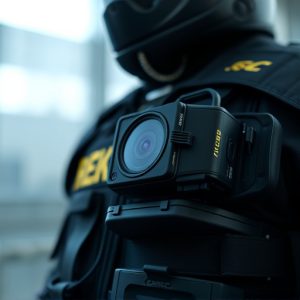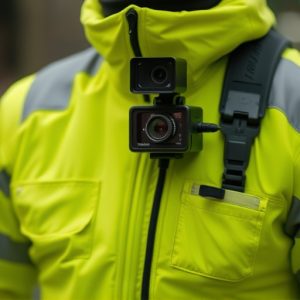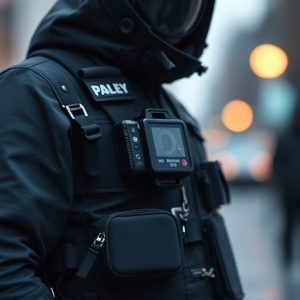Enhancing Personal Security with Body-Worn Hidden Cameras: A Legal and Ethical Perspective
Body-worn hidden cameras have become essential tools for personal safety, discreetly integrated int…….
Body-worn hidden cameras have become essential tools for personal safety, discreetly integrated into everyday accessories like glasses, lapel pins, or smartwatches. These devices enable users to covertly monitor and record their surroundings, potentially preventing escalations in public or while alone. Selecting the right camera system involves considering high resolution, long battery life, and sufficient storage to capture critical incidents effectively. It's crucial to be aware of legal restrictions and privacy laws when using these cameras, as they can vary by jurisdiction. Ethical use includes obtaining consent where necessary and respecting the privacy of others to avoid legal issues. By understanding their legal and ethical implications, individuals can employ body-worn hidden cameras not only for self-defense but also as a means to gather evidence responsibly in case of incidents.
body worn hidden camera systems have become increasingly popular as a personal safety tool. This article delves into the transformative role these devices play in enhancing one’s security and providing critical evidence in self-defense scenarios. We will explore the nuances of using such technology, including the technical aspects that make it an effective deterrent against potential threats. Additionally, we will navigate the legal landscape surrounding their use to ensure users are well-informed about the implications and ethical considerations they must keep in mind. Understanding the interplay between these devices and the law is paramount for anyone considering a body worn hidden camera as part of their self-defense strategy.
Maximizing Personal Safety with Body-Worn Hidden Camera Systems: A Comprehensive Guide
Body-worn hidden cameras have emerged as a critical tool for personal safety, offering individuals a discreet way to record their surroundings while deterring potential threats. These compact devices can be integrated into everyday items such as eyeglasses, lapel pins, or even smartwatches, ensuring they go unnoticed yet remain operational when needed most. The strategic placement of these cameras allows users to maintain a low profile, reducing the likelihood of confrontation, which is a key aspect of avoiding hostile situations.
For those concerned with their safety, particularly in public spaces or during solo activities, understanding how to effectively utilize body-worn hidden camera systems is paramount. This guide will delve into the selection process, highlighting factors such as resolution, battery life, and storage capacity that are essential for capturing clear footage when it matters. Additionally, users will learn about best practices for deploying these cameras, including legal considerations, ensuring their privacy and evidence integrity are protected. With the right knowledge and equipment, body-worn hidden camera systems can serve as a formidable deterrent against unwanted behavior and provide invaluable evidence should an incident occur.
Understanding the Legal Implications and Ethical Use of Body-Worn Hidden Cameras for Self-Defense
Body-worn hidden cameras have become increasingly popular as a means for individuals to document their surroundings and potentially deter wrongdoing, including self-defense scenarios. When considering the deployment of such devices, it is imperative to be aware of the legal implications that govern their use. Laws vary by jurisdiction, so one must research and understand the specific statutes that apply to surveillance and recording in public and private spaces. Recording individuals without their consent can lead to legal complications, including privacy violations, which is why it is crucial to be transparent about recording and obtain consent when necessary.
The ethical use of body-worn hidden cameras for self-defense hinges on the intent behind their use. These devices serve as a visual record that can aid in self-defense by providing clear evidence should an incident occur. However, the ethical use also requires respecting the privacy and rights of others. Users must exercise discretion, ensuring that their recording practices do not infringe upon the privacy of bystanders or innocent parties. Ethical considerations include understanding when and how it is appropriate to activate or share recorded footage. The responsible use of these devices can serve as a deterrent against false accusations and contribute to the preservation of one’s rights in self-defense situations, provided they are used within the bounds of the law.


